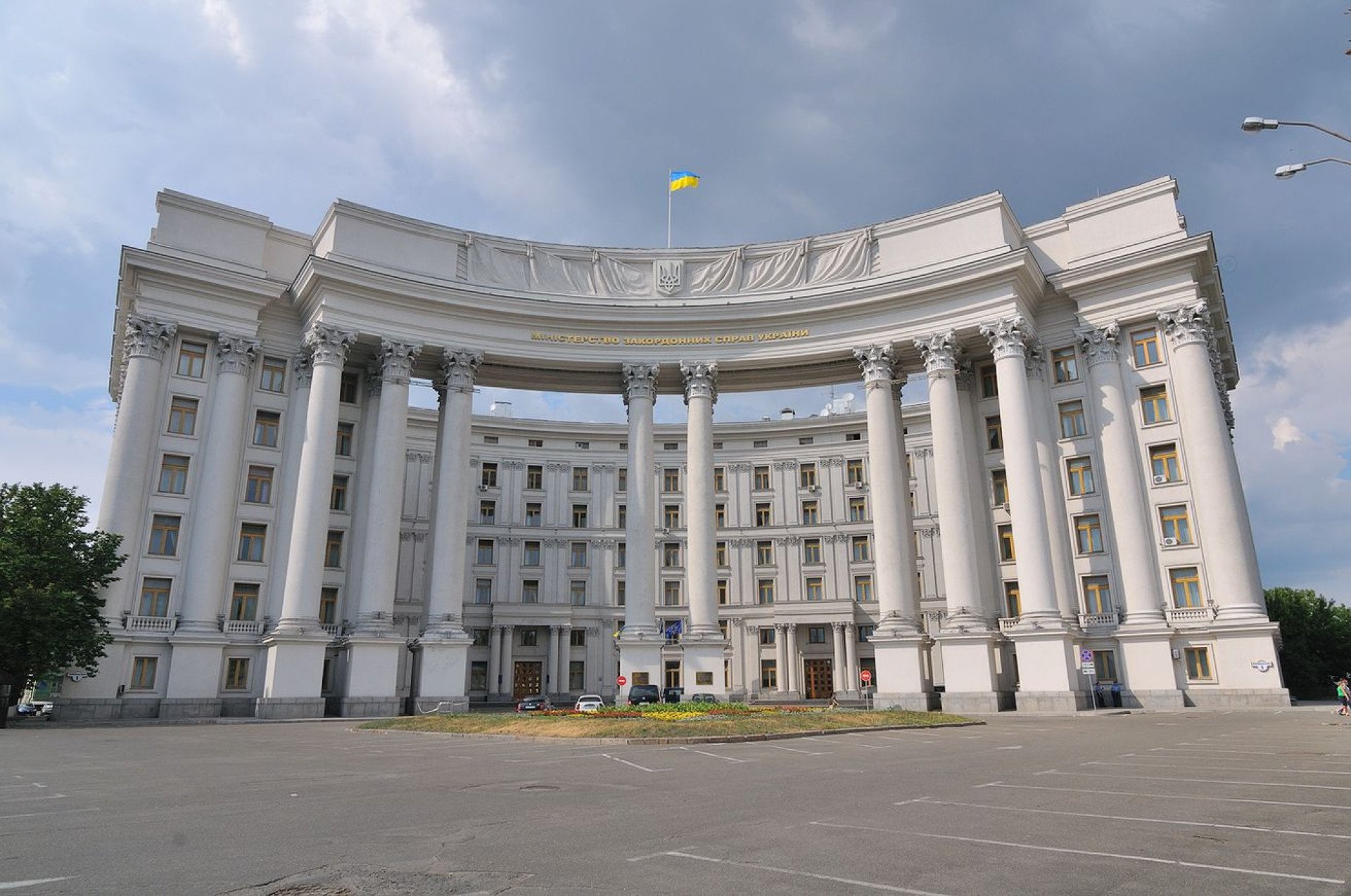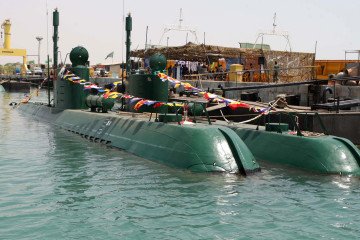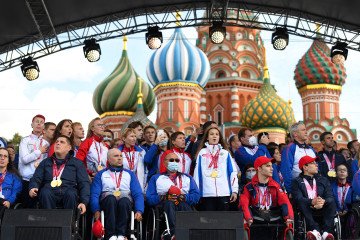- Category
- Latest news
Highlights from Ukraine’s MFA Press Briefing

On November 7, Ukraine’s Ministry of Foreign Affairs held a press briefing on current foreign policy issues. Here’s what was discussed.
On freezing the war
Ukraine’s Ministry of Foreign Affairs Heorhii Tykhyi dismissed recent “media-circulated” suggestions of freezing the war, stating they don’t reflect official positions and lack value for discussion.
“We don't see any reason and value in this testing things that are being circulated in the media that do not represent actually the official position or proposals. These are just someone's thoughts. We don't see sense in giving them more weight and gravity and then they have. So I will not go into detail hypothesizing about whether we can accept or not accept or discuss those things,” commented Tykhyi.
On Donald Trump’s presidency
President Zelenskyy expressed support for Trump’s “peace through strength” approach, inspired by Ronald Reagan, as relevant today. This strategy, Zelenskyy believes, is essential for a “strong posture” for the US and allies facing threats. Trump’s election shows shared commitment to the Ukraine-US strategic partnership. Tykhyi emphasized bipartisan support as “the greatest asset Ukraine has in the US.”
“President Zelenskyy and Trump have a long-standing, constructive and result-oriented dialogue. They kept in contact before the elections and they will keep in contact in the following weeks and months. Ukraine values the bipartisan support in the United States,” Tykhyi said.
On negotiations with Russia
Tykhyi pointed out that between 2014, when Russia invaded Ukraine, and 2022, Ukraine and Russia had over 200 rounds of negotiations, including 20 ceasefire agreements, which Russia repeatedly violated.
“There is no other country in the world that wants peace in Ukraine more than Ukraine itself. But we don't need peace at any cost, we need just comprehensive and long-lasting peace. Is it sufficient to, as they say, just sit down and talk to achieve such an outcome? Well, look no further than the years between 2014 and 2022 to answer this. So in these eight years, between 2014 and 2022, Ukraine and Russia actually sat down and spoke for almost 200 times, 200 rounds of negotiations. They were mediated by France, Germany, and the OSCE. And there were 20, exactly 20 ceasefires, ceasefire agreements that were agreed during these eight years of time. All of them were probably violated by the Russian side,” Tykhyi said.
On North Korea
At a European summit, Zelenskyy warned of Russia’s escalating war tactics, including the recent deployment of regular North Korean troops, calling this a significant escalation by Russia. He stressed that Russia has shown it does not need caution to escalate.
“Back in the summer, we heard many partners saying that they want to avoid escalation, that they really don't want to take some of the steps because these are escalatory, these can really escalate the country. We can clearly see now that Russia just escalates the war when it deems appropriate or when it wants. And of course, the engagement of North Korean troops, regular troops, not mercenaries, regular North Korean troops into the war is an escalation of the war on the Russian side,” Tykhyi stated.
On relations with the Republican Party
Tykhyi argued that peace in Ukraine is in the best interest of America and is neither a “Democratic nor Republican” issue. He stated that supporting Ukraine is “not charity” but a “profitable investment in security.”
“Today we think that ensuring a fair and just peace in Ukraine is in the best interest of America. It's not democratic, it's not republican, it's American. It's in American interest. And this is why ending it in a fair way is basically the only way that you can ensure that it doesn't cause more conflicts and more wars around the world.”
On US and EU aid
When asked whether Ukraine is anticipating a cut in US and EU aid, as well as weakening EU support, Tykhiy pointed out that Ukraine’s support is almost equally shared between the US and Europe, emphasizing that Ukraine does not rely solely on the US. He said that cutting aid would not force Ukraine into peace but would likely “expand the scale and scope of Russian atrocities.” This outcome, he warned, would renew calls for resumed military support.
“We are not looking into scenarios of US cutting its military aid, because this is basically, this is not something that is not in the best interest of the United States to take such a step in the first place,” Tykhyi said.
“I don't refer specifically to the United States, there are just voices around the world who suppose that if military supplies to Ukraine are cut, Ukraine will be forced to negotiate or forced to seek peace. This is not true. Because what is going to happen if Ukraine has less support, is just the war will expand. And there will be more atrocities committed by Russians against Ukrainian people. It will just expand the scale and the scope of Russian atrocities against the Ukrainians. And it will force, again, the foreign countries to restore and resume this military aid. So this is just not a realistic scenario.”
On Baltic security
When asked whether Europe truly believes that Russia will not stop at Ukraine and will invade the Baltics, Tykhyi noted that countries near Russia, particularly in Eastern Europe, feel the threat from Moscow more acutely, a factor in Finland and Sweden's swift decision to join NATO in 2022. This concern isn’t just a Ukrainian perspective but a reality rooted in Russia’s aggressive actions, including a 2021 ultimatum for NATO to return to its 1997 borders, according to Tykhyi. This demand, often forgotten, highlights Russia's ambitions beyond Ukraine.
“Some of the warnings coming from Poland, from the Baltics and some other countries. In the end we have been proven right, we have been proven realists, not alarmists, but we would prefer that our partners listened to those warnings when they are voiced, not after they are proven. Because in the process territories are lost, and most importantly, lives are lost,” Tykhyi said.
On the Second Peace Summit
Preparations for the Second Peace Summit continue, with recent thematic conferences establishing a solid base for a joint peace framework, set for completion in November. Tykhyi clarified that the Victory Plan complements, rather than replaces, the peace formula, answering “how” to achieve a genuine, just peace.
“As you know, during August-October, there were nine thematic conferences on specific points of the peace formula. All of these events have already been concluded. They resulted in the adoption of joint communiques. And we think that those communiques, those documents create a solid base for the finalization of a joint peace framework. And this document, which we plan to complete in November, will represent the position of the international community on a just end to the war based on the purposes and principles of the UN Charter,” Tykhyi said.


-111f0e5095e02c02446ffed57bfb0ab1.jpeg)




-33441405bda6df220cc127a38043a08d.jpg)